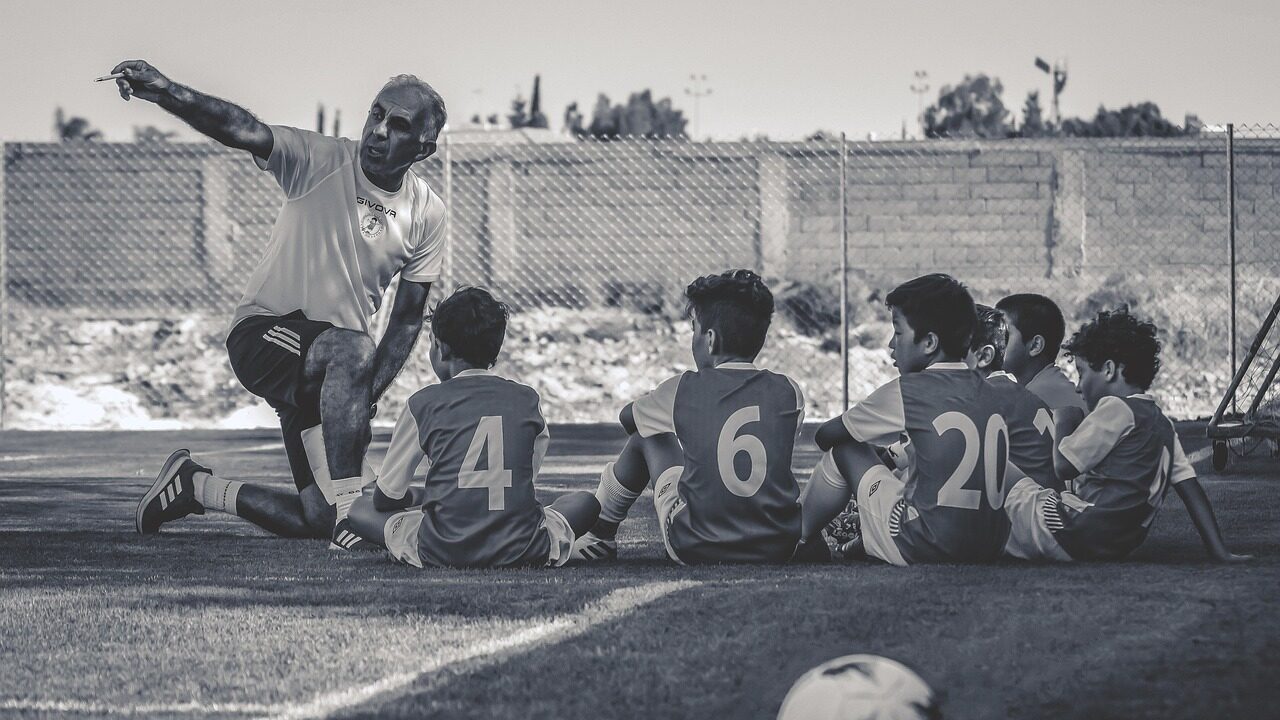Players-First and Players-Centered Coaching are two powerful concepts in modern sports. By exploring their meaning, this article aims to help coaches understand how to create a better environment for players and what kind of coaching to strive for.
Players-First: A Holistic Approach to the Game
The term “Players-First” often comes up in the media whenever there’s a scandal in the sports world. In short, it means prioritizing the player. But the concept is much broader than that.
The Japan Football Association (JFA) provides an excellent definition on its grassroots page. While the text refers to “children,” the message applies to all “players.”
“The game has a great impact on the development of children. It is important for adults in various related fields to work together to pursue the most suitable game environment for each and every child. We would like to work with the adults involved in the soccer environment for the developmental age—that is, coaches, referees, tournament formats, parents, and supporters—to judge what is best for the children and work to resolve various difficulties with this perspective.”
— Excerpt from the Japan Football Association (JFA) website
This passage shows that “Players-First” refers to the entire environment surrounding the players. It goes beyond the human element—like coaches, referees, and parents—to include the physical environment, such as the format of a tournament. This philosophy requires a strong will to optimize every aspect of the game for the players, from the individual level to the entire sports system and rules.
This concept resonates deeply with me. The idea of “judging what is best for the children” is both the most difficult and the most meaningful part of a coach’s job. There is no universal answer to this question, which is why a coach must constantly learn and reflect.
Players-Centered Coaching: The Coach as a Catalyst for Change
A coach has an immense responsibility to create an optimal environment for their players. A coach’s influence is immeasurable, not just through direct interaction but also in managing the entire environment—from practice schedules and team culture to decision-making processes. A coach must be aware of this role and acquire the skills to manage it.
This brings us to the concept of Players-Centered Coaching. It is a relatively new idea in Japan, and to understand it better, we’ll look at the insights of Associate Professor Masamitsu Ito of Nippon Sport Science University.
The Essence of Players-Centered Coaching
When asked to define Players-Centered Coaching, Professor Ito stated that it’s a coaching style that “always puts the athlete at the center and requires the coach to have a passion for teaching.”
When asked about the essence of this philosophy, he responded:
“It’s about understanding learning… If you don’t understand this, your passion for teaching can be fruitless. We often misunderstand the true meaning of ‘teaching.’ You can only say you have taught something when the other person has learned in a positive direction. For example, a teacher writing important points on the blackboard and explaining them isn’t ‘teaching’ if the students don’t understand.”
This means that “Players-Centered Coaching” is a process where the player learns, understands, and progresses. It is not about simply transferring knowledge, forcing players to follow patterns through repetitive drills, or blaming them for not progressing. Prioritizing a temporary win for a coach’s ego over a player’s growth is a far cry from this philosophy.
Professor Ito also emphasizes that this coaching philosophy is about a coach reflecting on their own identity:
“Coaching is not a technique or a skill to change someone else. It’s actually a discipline of thinking about what kind of person the coach wants to become. When the coach changes, the players also change. Once a coach realizes this, their mindset changes dramatically.”
A coach must not only focus on “what to do” but also on “what kind of person to be.”
Don’t Be the Last Coach
Professor Ito’s powerful final message is: “Don’t be the last coach.”
related article:
“People should not become unhappy through sports. This is my belief. I believe in ‘Happy Sports!’ Why do we do sports? Because it’s fun and it makes for a happy life. No one starts a sport to become unhappy. Yet, sadly, many people quit sports. When we do a follow-up survey on players who were at an international level as juniors but later quit the sport, the cause was almost always the coach. The coaches, who were supposed to have the best interests of their players at heart, were somehow doing the exact opposite. Coaches are athletes, too. As athletes, they should be interested in their own improvement and what constitutes excellent coaching.”
The origin of the word “sport” is diversion and fun, meant to enrich one’s life. The sad reality is that many people become unhappy through sports, and the primary cause is often the coach, who is supposed to be a source of happiness and growth.
This realization serves as a strong reminder that as a sports coach, I must constantly reflect on my own coaching and continue to learn every single day.
The Path Forward: Players-First Environment and Players-Centered Coaching
My reflections on this topic have led me to believe a coach’s job has two main responsibilities:
- To be an active participant in creating a “Players First” environment.
- To practice “Players-Centered Coaching” every day.
The responsibility of a coach is immense, but it is also a valuable and endless journey.
To conclude, I would like to share a brilliant phrase I recently discovered that perfectly captures the essence of coaching:
Coaching is a structured improvisation performed in chaos.



